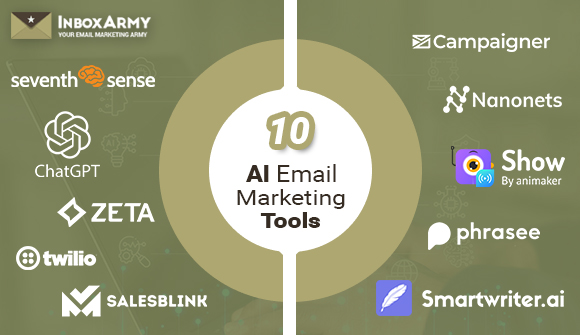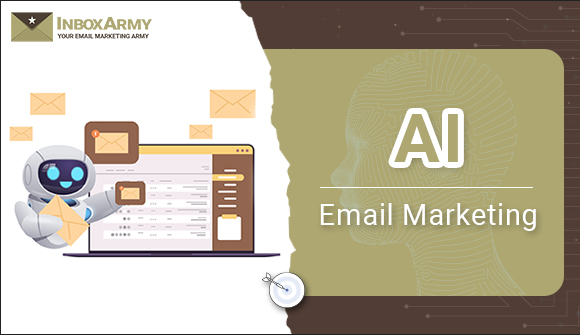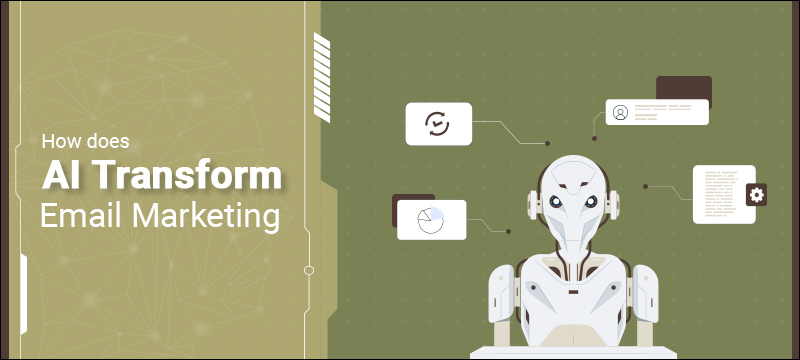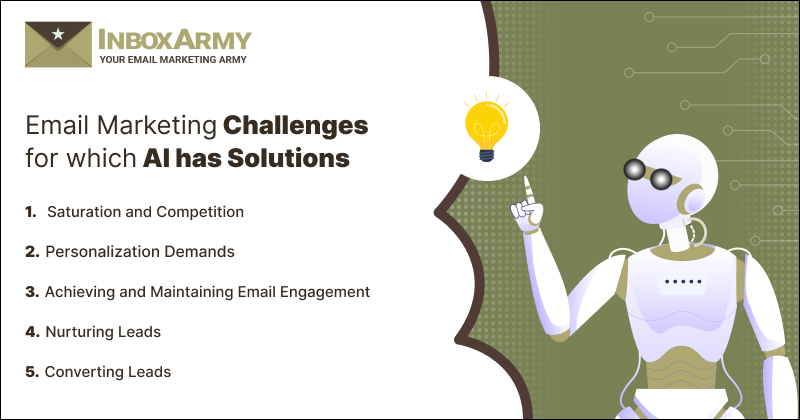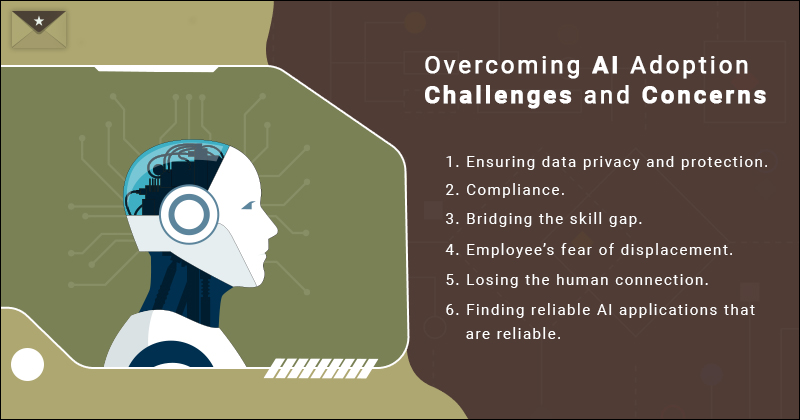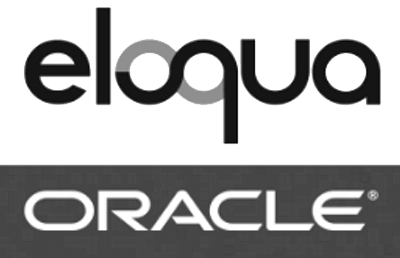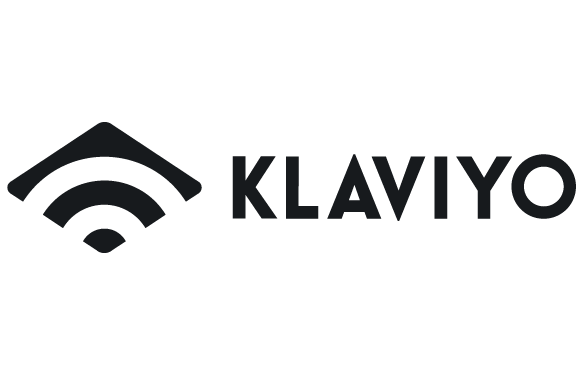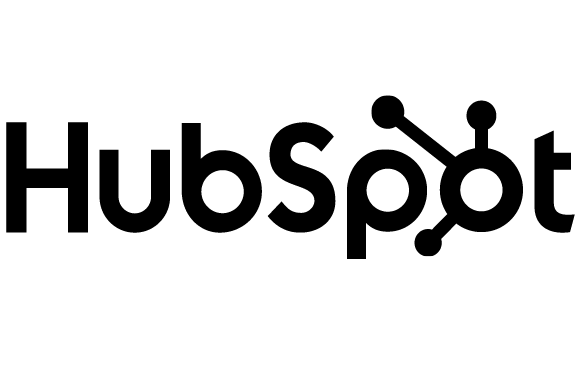With the rapid advancements in machine learning and data analytics, AI has become a crucial component for marketing professionals to improve the efficiency and effectiveness of their email campaigns. Email marketing continues to be one of the top marketing channels, with 51% of marketers claiming it is their most effective channel. With AI’s capabilities and it’s reach, a combined AI email marketing tool strategy has opened up new possibilities for marketing ROI and conversions.
What is the current email marketing landscape? Why should you care about AI in email marketing? And if you wanted to start using AI in email, where would you start? This article will cover these questions in detail. Let’s jump in!
Email Marketing Technology Landscape
The Email marketing has evolved dramatically over the last decade and will continue to do so. Email has adapted to a more visually focused society with the inclusion of visual hierarchy and multimedia. Email content and marketing have become more efficient and widespread with AI automation.
It remains a highly effective communication tool. Direct uninterrupted access to leads garners significant results in lead nurturing, brand image, and conversions. Email marketing generates roughly $36 for every dollar invested across industries. ROI is even higher for the retail and commerce industry, reaching $42 per $1 spent!
How widely is email used?
Email marketing is predicted to grow to a valuation of $3.1 billion by 2030. As of 2022, there are 4.26 billion email users, and at the end of 2023, the Radicati Group estimates there will be 4.37 billion worldwide users. By 2026, it is predicted we will see 4.73 billion users worldwide.
During 2022, every day, 306 billion emails were sent and received each day. By 2025, that number is expected to exceed 376 billion daily emails. Apple’s email app was the most popular one used in 2022, with the Gmail app coming in second.
How do businesses and marketers feel about email?
Email marketing is identified as one of the top channels by marketers. Email is highly effective in generating new leads, with 89% of marketers primarily using email in this capacity. Email marketing click-through rates (CTR), open rates, and conversion rates are well worth the investment.
Businesses of all sizes acknowledge the higher ROI of email. In larger companies with over 500 employees, see an email ROI of $41 for every $1 spent. Smaller businesses with 100-499 employees had an ROI of $40 for every $1 spent.
According to Hubspot, 53% of marketers will continue investing in email marketing in 2023, and 33% want to increase their email marketing investment.
Email marketing offers unique benefits not found in advertisement or social media marketing. Complete ownership of your channel and audience allows business peace of mind and protection from external influences.
10 AI Email Marketing Tools
Here is a list of commonly used AI tools to assist you with email marketing.
1. Shows by Animaker
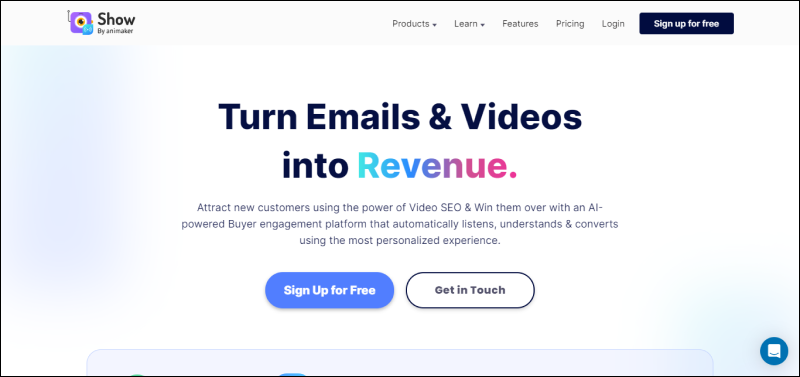
Send personalized emails at scale: advanced algorithms and an intuitive drag-and-drop email builder. Shows utilized omnichannel tracking, which reduces the need for multiple tracking tools. It aims to improve your open rates 2x and achieve the highest deliverability rate in the industry.
With Video and AMP Email, Shows claims to deliver a 760% increase in revenue. Shows assist with onboarding, newsletter, lead generation, outbound, ABM, segmentation, CRM, and more.
By using in-depth analytics, this tool builds interactive emails and personalized campaigns. Pricing ranges from free to $89 per month, and the Enterprise option is customized based on your organization’s needs.
2. Chat GPT

An AI tool that needs no introduction. This tool has been seen across news headlines and articles worldwide. This tool falls under the content generation umbrella. Create written content, brainstorm, and develop ideas using this tool.
Chat GPT has different models, and pricing varies depending on the amount of images or content generated and your subscription.
3. SmartWriter.ai
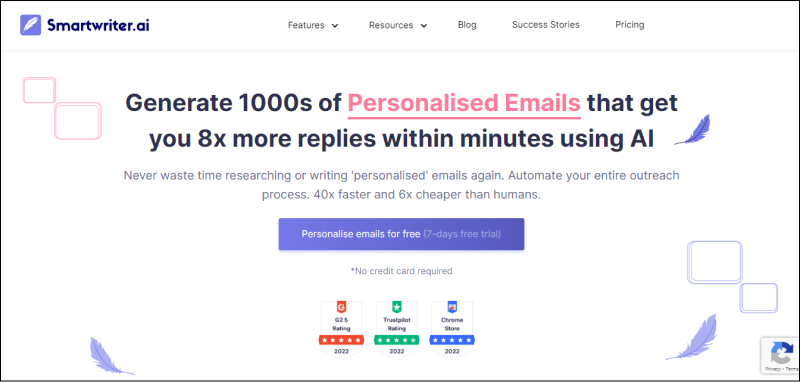
This AI personalization platform is based on GPT-3. It generates engaging content like Chat GPT and leans towards cold emails. This tool also enables you to create Google ad copy and Facebook ad copy for your brand.
Its features include email verification, personalization, LinkedIn, backlink outreach, LinkedIn Chrome extension, and deep enrichment.
Essential, Popular, and Pro plans range from $59 monthly to $359. There is an option to pay by the year with monthly plans averaging $49-$299.
4. SeventhSense
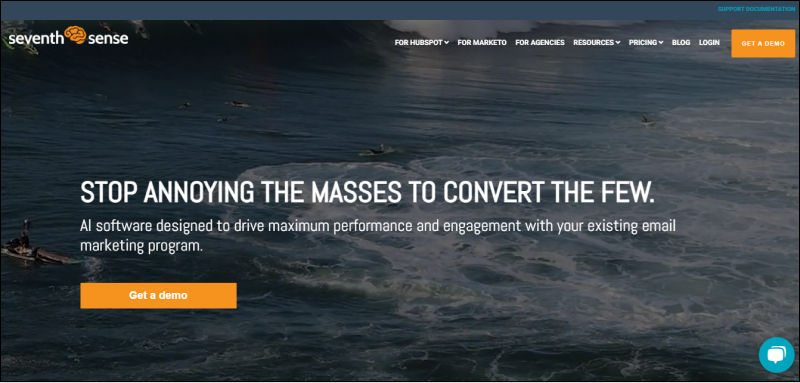
An exciting AI email marketing tool that analyzes customer behavior to create behavior profiles and attract client attention. Ideal send times, customer interactions, and individual preferences are noted and analyzed to optimize open rates and engagement. This AI tool used a prediction model for each contact.
Features include analytics, drip campaigns, email previewing and tracking, third-party integration, event-trigger actions, and engagement tracking.
Pricing ranges from $19 to $499 per month, depending on the size of your organization.
5. Phrasee
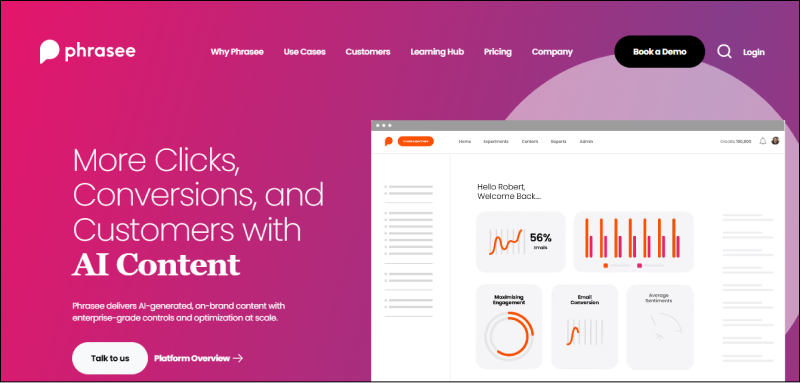
Phrasee assists email marketers in subject line writing. Its deep learning algorithms write human-sounding marketing copy that aligns with your branding. The AI tool aims to help your business get more clicks–boosting your open rates and conversions by capturing readers’ attention.
The system identifies the content that gets the highest responses and engagement. It then uses these insights to create subject lines, in-body content and calls to action that achieve higher open rates.
Phrasee includes marketing automation, A/B testing, predictive analytics, and engagement metrics. To get a quote, you need to contact their sales team.
6. Zeta Email
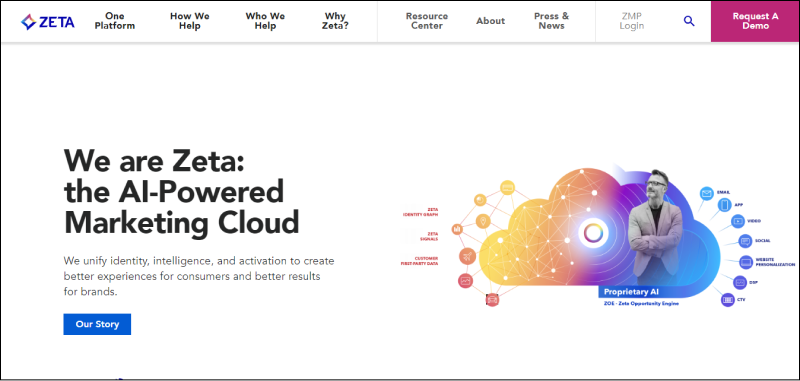
Zeta email takes a unique approach, uncovering customer purpose, context, and identity. These insights are applied to omnichannel emails to boost email performance and increase engagement.
The tool also tracks consumer behavior, such as interactions with digital assets and content. These insights are applied to email content to enhance future interactions. Zeta Email uses content blocks to make email design easy!
Zeta Email includes the following features: A/B testing, campaign analytics, activity tracking, CAN-SPAM Compliance, real-time analytics, and predictive analytics. Contact Zeta to learn more about their pricing.
7. Twilio SendGrid
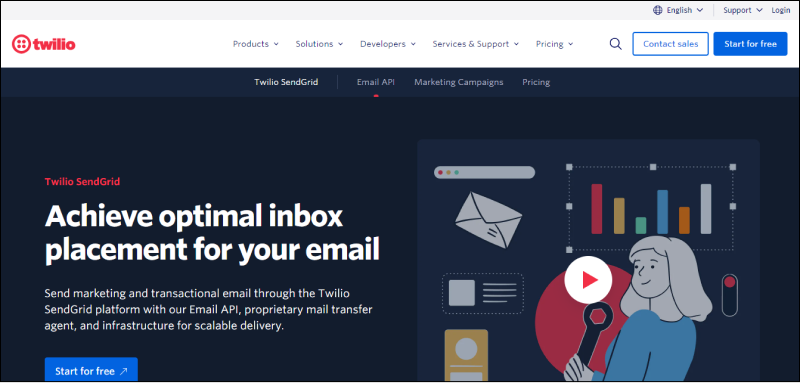
This AI tool enhances email deliverability. A great email is only effective if it arrives in a recipient’s inbox. The AI-powered software optimizes the sender and recipient experience to improve email deliverability.
Using data analytics and tracking, it follows open rates, devices used, and location. Emails are categorized, and performance is tracked and measured. Both historical and real-time data are used to provide insight for improvement and predictive analysis. Using this tool improves your email deliverability and performance.
This AI email marketing tool includes email editor, deliverability insights, automation, neural protection, integrations and API, and content marketing management.
Pricing ranges from $19.95 monthly and up, depending on your needs.
8. Campaigner
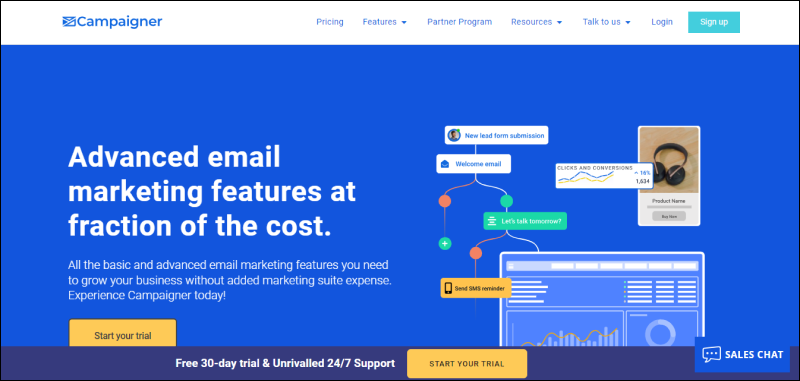
This AI tool provides basic and advanced email features and claims to provide them at “a fraction of the cost.” It allows you to write compelling copy that engages with customers at different stages of the buyer journey. These features automate your workflow and deliver a more efficient email marketing process.
Campaigner integrates with third parties and creates complex segments based on user analytics and activity.
Features include email automation for workflow, content generation, integration with RESTful API, and impact analytics. Pricing is between $59 to $649.
9. Nanonets
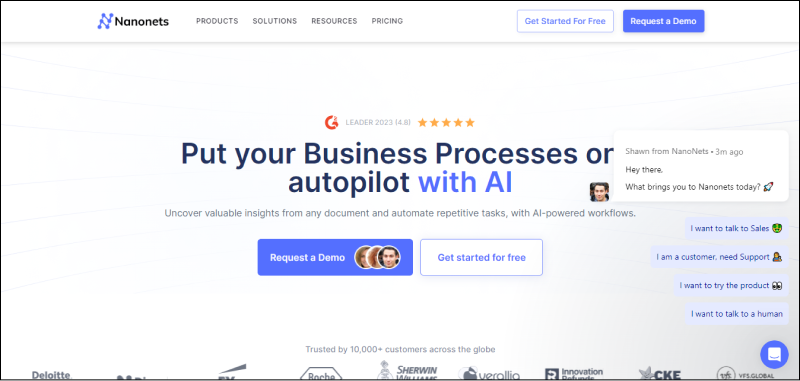
Nanonets is an email generator that uses natural language processing (NLP) to develop insightful emails. The algorithm aims to understand your email’s tone, context, and ad intent. It then generates suggestions based on these data points.
This email marketing platform offers integrations to improve workflow, AP automation, email parser, analytics, and reports. These features streamline your data analytics process and save you time. Extracted data can be used to inform future email marketing efforts.
The platform offers two pricing options: pay as you go or per month per model. The Pro per month per model pricing is $499. For the Enterprise option, you need to contact the sales team.
10. SalesBlink
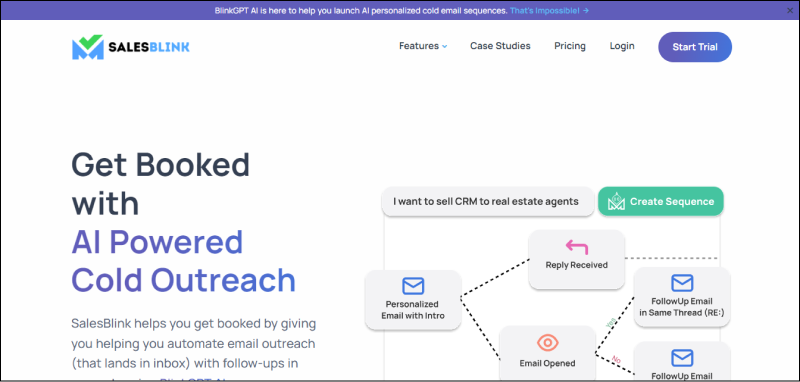
This AI email marketing tool is an outreach platform that offers a free subject line generation tool for sales emails. Input your branding information and services; the generator will provide great subject lines.
This tool can generate and regenerate as many subject lines as you like. The platform displays the possible open rate along each subject line, allowing you to choose a solid subject line.
This tool helps you generate in-body content, increase open rates, and ensure email deliverability. SalesBlinks Mail Merge feature assists with personalization in images, email body, and subject lines at scale.
Other features include email tracking, analytics reports, multichannel sales sequencing, cold email outreach, and a meeting scheduler. Pricing ranges from $25 per month to $149 when billed annually.
Key Benefits Of Adopting AI In Email Marketing
Marketers should take note of AI tools in email marketing for several reasons, as these tools can significantly enhance the effectiveness and efficiency of their campaigns.
Here are some key reasons why AI is valuable in the context of email marketing:
1. Personalization
Simply put, more personalization means more conversions. AI tools can analyze vast data to identify individual preferences and behaviors. This enables marketers to create highly personalized email marketing campaigns, delivering relevant content to each recipient. Personalized emails have higher engagement rates and can foster stronger customer relationships.
2. Segmentation and Targeting
AI helps segment audiences based on various criteria, such as demographics, behavior, and preferences. AI can complete automated tasks to segment new subscribers and customers regularly, ensuring your data and personalizations are current.
This allows marketers to send targeted and relevant messages to specific groups, increasing the likelihood of conversions. AI automation and data analysis make marketing teams more efficient and enable them to garner better results.
3. Optimizing Send Times
AI algorithms can analyze data to determine the optimal times to send emails to different segments of your audience. This ensures that emails are delivered at times when recipients are most likely to open and engage with them, improving overall campaign performance.
4. Predictive Analytics
Leveraging predictive analytics allows AI to forecast future customer behavior based on historical data. Marketers can use this information to anticipate customer needs, send targeted offers, and create campaigns that align with potential customer actions.
5. Automated A/B Testing and Content Optimization
A/B testing is a crucial aspect of email marketing. AI can automate the A/B testing process, allowing marketers to test various elements such as subject lines, content, & images more efficiently. This helps in identifying the most effective elements for better campaign results.
AI tools can analyze historical performance data to optimize email subject lines and content. This data provides insight into what content resonates most with their audience, improving open and click-through rates.
6. Email Campaign Automation
AI-powered automation can streamline creating, sending, and analyzing email campaigns. This saves time and ensures a consistent and timely flow of communications with the audience, improving overall campaign management.
Email automation allows businesses to offload trigger emails to an AI email marketing tool. Emails like welcome emails, transactional emails, and reminders can be automatically managed and sent. This saves businesses time and human resources.
7. Enhanced Data Analysis
AI can quickly process and analyze large data sets, giving marketers valuable insights into customer behavior, preferences, and trends. This data-driven approach enables marketers to make informed decisions and continually optimize their email marketing strategies.
8. Reducing Manual Workload and Reinvest Talent
AI tools can automate routine tasks, allowing marketers to focus on more strategic aspects of their campaigns. This includes email list segmentation, content personalization, and performance analysis.
The human resources saved by AI automation can be spent on content strategy, customer service, and other tasks that improve ROI.




